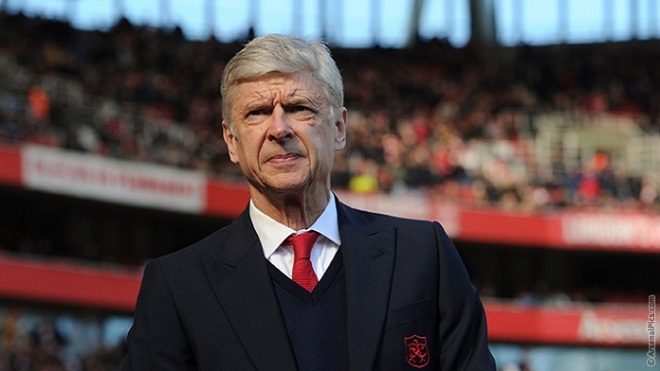
How Arsene Wenger changed the Premier League … and then dropped the ball
By Rob Gowers
When Arsene Wenger was named as the new manager of Arsenal FC in September 1996, English football was in a period of transition. The 1989 Hillsborough disaster had led to a transformation of the grounds and treatment of supporters and the arrival of the Sky Sports TV channel heralded the formation of the Premier League in the 1992-93 season.
At pitch level however, the game remained the same. Tactics, pre-match preparation, training methods, were all largely unchanged. When Wenger got his job at Arsenal, he was only the third foreign manager to take charge of a Premier League team. His background (a degree in economics), modest playing experience and bookish appearance seemed completely at odds with the environment that existed at Arsenal at the time. This was an environment best understood by the title of the then captain’s autobiography. Former central defender Tony Adams called his memoir “Addicted”. But Arsenal were by no means the only club with an ingrained drinking culture during this period.
Like any great leader, however, Wenger could see into the future. In his first ten years at Arsenal he completely changed the philosophy of the game and achieved great success. But then he took his eyes off the ball. He missed the next set of big changes that forged how the Premier League evolved.
In the beginning Wenger’s tactics were considered to be ahead of their time, and thoughtful. His nickname, “the professor” reflected this. Part of his original approach was to focus on more than just match day. The “non-visible” preparation of his squad ranged from improving the food menu the players ate, to adjusting training methods to place more emphasis on ball control.
It seems strange now to think that these adjustments were in any way revolutionary, but at the time his methods were met with resistance by the players. Now many of them credit Wenger with extending their careers by a number of years.
A second key initiative was his ability to call on a network of scouts to help spot talented and undervalued players – especially from France. This brought him influential and talented footballers like Patrick Vieira, Robert Pires and Thierry Henry. He also used statistical data when purchasing players. This was not a new sporting tactic (think of the film `Moneyball’ and what the Oakland A’s achieved in baseball by using statistical analysis). But it was one of the first proper applications of it to English football. Clubs now employ full time statisticians and the data being collected has created a new industry in offering analysis of it.
The success of this new strategy was almost immediate. Wenger was the first foreign manager to achieve the league and cup double in 1998, and then repeated this feat in 2002. Arsenal won the FA Cup in 2003 and 2005, and in the 2003-04 season, the team went unbeaten in the Premier League. (This was only the second time this has been achieved. Preston North End had become the first “invincibles” in the inaugural season of the Football League in 1888-89.)
It was also the way in which Arsenal played that made this incredible achievement really stand out. Before Wenger arrived, the chant, “One-nil to the Arsenal”, reflected their focus on defence. The trophies won under their new manager saw a reinvention – a new focus on attack and playing the game with flair.
After this, change again swept through the English game in the form of huge amounts of overseas money. The business of football had altered, and Arsenal and Wenger were slow to react. The fact that they also had to fund a huge new stadium also complicated issues. Across London, Roman Abramovich bought Chelsea in 2003 and over the next decade, loaned the club just over £1 billion. The result? Some of the world’s best (and most expensive) players, and no fewer than 15 major trophies – including the ultimate prize, the Champions League trophy.
Wenger first saw the influx of foreign money as a short term phenomenon and wanted to ensure that Arsenal had a sound financial basis rather than run the risk of overspending and bringing the club down. The result of this was in complete contrast to Chelsea. Between 2005 and 2014, Arsenal had a great new stadium, sound finances – and no major trophies.
Playing the long game
The club is now playing catch up. Since 2013 their spend on new players of £197m has only been exceeded by Manchester United and City. As a consequence, their runners up spot in the Premier League of 2015-16 was still considered disappointing, together with the increasingly familiar exit at Champions League quarter final stage. With so much at financial stake now a top four finish is a must.
After yet another early exit from the Champions Leagues (a particularly embarrassing 10-2 aggregate defeat to Bayern Munich), the calls for Wenger to go are getting louder every week.
But Arsenal fans should be careful what they wish for. They owe Wenger plenty of gratitude for transforming the club. Yet rivals with deeper pockets have taken English football to the next level. Wenger’s background in economics will mean he knows that debt can bring quick results but risks long term damage.
With future TV deals expected to bring even more money into the game Arsenal must decide what model they want to follow. Should they gamble on the long term growth of TV revenues and spend big? Or do they continue to live within their current means? If Wenger does leave, Arsenal may need a new professor to explain what happens next.
****
Rob Gowers is a Senior Lecturer in Leadership and Management, Anglia Ruskin University
****
Source: The Conversation
 The Independent Uganda: You get the Truth we Pay the Price
The Independent Uganda: You get the Truth we Pay the Price





